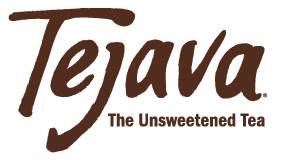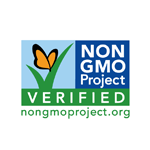You’re at the market picking up groceries for the week. Instead of the usual frozen dinners, soft drinks, and bags of snacks, you’ve decided to clean up your diet, drop the junk food, and eat more fresh, whole foods to see if that might reverse some of the health issues you’ve been experiencing.
You’ve been feeling low on energy lately, you don’t feel good soon after eating certain foods, and you’re having trouble maintaining focus. You’ve been hearing that if you want to be healthy, start with what you put into your gut. You’re about to put that theory to the test.
Health experts are making more connections between gut-healthy foods and overall health. Many studies have concluded there are direct connections between gut health and energy level, immune system, clarity of thought, mood, chronic diseases, the ability to gain or lose weight, metabolism … every aspect of our health from our internal systems to our outward physical appearance.*
#1: Focus on Good Bacteria and the Microbiome
Like the relationships that exist between living beings and their external environment, our body has an internal ecosystem that has a sensitive relationship with food. Our body is dependent on that internal ecosystem to keep us alive and well. Specifically, our body is dependent on healthy foods. How does that relationship of good food and our good gut health work? A big part of it begins with bacteria and the microbiome.
Most people think bacteria in the body is a bad thing, that it can cause us to get sick and develop certain diseases. That’s true to some extent. But what we now know is that many bacteria can be classified as “good bacteria.” In fact, bacteria resides in all of us … in the trillions. They are an integral part of our internal ecosystem known as the microbiome (a fancy word, which when broken down, means “small habitat of living things.”)
The organisms that make up our microbiome govern nearly every function of the body. Researchers say about 90 percent of all illness can be traced back to our microbiome. Since the majority of bacteria live in our digestive system, controlling what we put into our digestive system can have far-reaching effects on our health. When we eat a healthy diet, we’re supporting our microbiome. That’s the compelling connection between food, health, and our gut.
#2: Think Red for Reservatrol
Nature imbues healing substances into whole foods – some have more than others. These substances carry enhanced health benefits. We commonly refer to these enhanced foods as “superfoods.” They are plant-based foods that contain chemicals classed as a phytonutrient. Phytonutrients protect both the growing plant itself from disease and they can help protect you too by making your body function better.
Reservatrol is a phytonutrient that is plentiful in red grapes, red wine, peanuts, blueberries, cocoa, red cabbage, and red onions. Research has shown that Reservatrol has numerous health benefits. This compound has been found to help lower blood pressure, suppress inflammation, and improve memory.
#3: Eat Plant-Based Foods High in Polyphenols
Micronutrients found in certain plant-based foods are also shown to reduce the risk of specific health conditions. One type of micronutrient, polyphenol, is found in spinach, broccoli, carrots, asparagus, yellow onions, white potatoes, berries, nuts, seeds, legumes, and green tea. The polyphenols in green tea, in particular, have been found to help reduce high blood pressure, high cholesterol, and digestive issues, according to research studies.
#4: Include Probiotics
Taking a probiotic is like getting a booster shot. It helps improve your immune system and it does so through your intestines. Probiotics are live cultures of beneficial bacteria that replenish the bacteria already in your gut and can add many more. Yogurt that contains live bacteria cultures, for instance, can be one way to add more “friendly” bacteria. Other foods that go through a natural fermentation process also have a probiotic effect on the gut: sauerkraut, pickles, kefir (a kind of liquid yogurt), and miso (fermented soybeans), to name a few.
Probiotics also come in convenient pill and capsule form. Popping one in your mouth may help to start your day off right. Research shows probiotics can improve digestion, killing harmful yeast and microbes … microbes that cause certain bacteria to proliferate which can lead to an overgrowth of certain bacterial strains that can damage to the body. Candida is a common one.
When unfriendly or an overgrowth bacteria run rampant in your gut it can permeate the gut’s cell walls, leading to a condition called leaky gut. If you’ve ever been diagnosed with either candida or leaky gut, you may experience a wide range of symptoms that can be vague, nagging, and uncomfortable, and mentally and physically draining. Taking probiotics and avoiding certain foods that can aggravate these conditions may provide significant relief to sufferers.
#5: Drink Tea
Tea has other health benefits besides those derived from polyphenols. One of them comes from a substance called catechin. Catechin compounds can help prevent heart disease, high blood sugar, inflammation, and can fight cell damage caused by free radicals. Catechins are antioxidants that have powerful anti-inflammatory properties.
Catechins are found in both black and green tea. The catechins in green tea can help with weight loss, muscle fatigue after exercise, ease teeth sensitivity, and prevent cavities. Green tea catechins are also said to have skin benefits: they reduce the signs of aging skin, skin damage from the sun, and can keep your skin elastic and clear of blemishes.
Tejava Original Black tea and Tejava Origins Hojicha Green tea are delightfully refreshing and contain healthy catechins and polyphenols. Drinking them regularly may contribute to good gut health, which in turn keeps you in great health overall. The next time you’re at the store, add these Tejava teas to your shopping cart. Your gut will thank you.
*References:
https://www.ncbi.nlm.nih.gov/pmc/articles/PMC3983973/
https://www.bmj.com/content/361/bmj.k2179https://www.webmd.com/digestive-disorders/what-your-gut-bacteria-say-your-health#1




